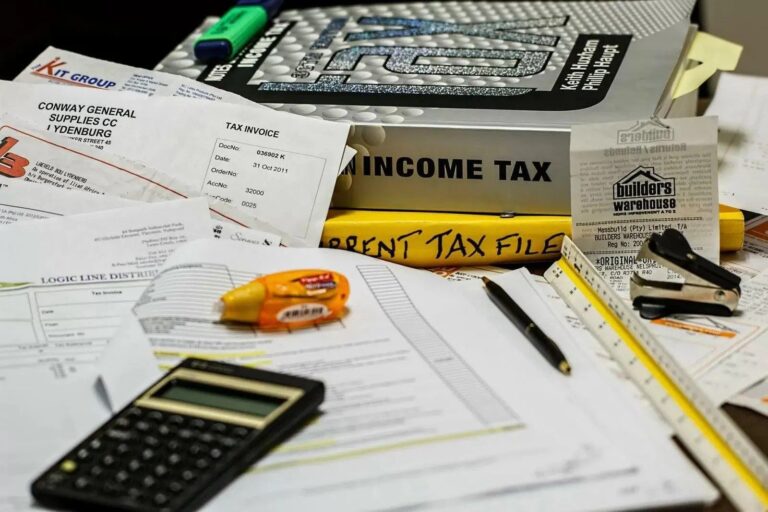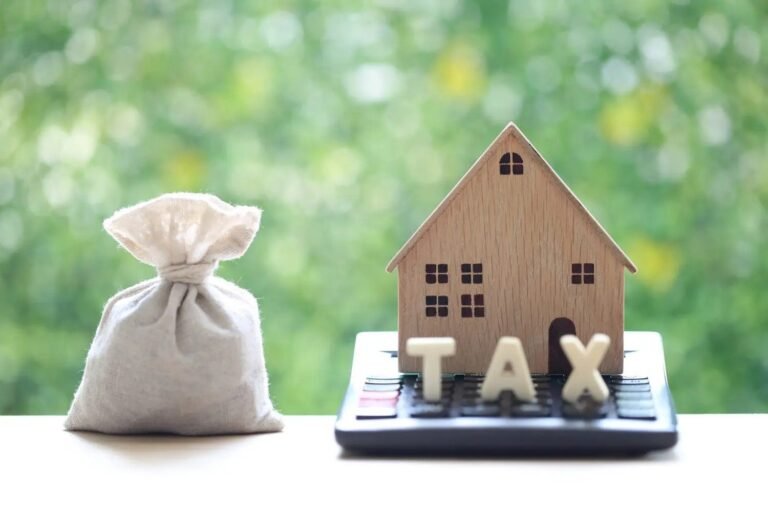Any profit and gain arising from the Transfer of House property shall be chargeable under the head capital gain in the year the transfer took place.
The rate of tax depends on the nature of the house property.
What is the nature of the house property being sold, and what is the tax rate on such sale?
The nature of the house property depends upon the period of holding. The tax rate varies depending on the nature of the property.
The period of holding is the date from which the property was first acquired until its sold date.
The nature of the house property can be identified as below:

*No capital gain shall arise in case of sale of house property on the partial or total partition of HUF.
How is the Capital gain on the sale of house property calculated?

The capital gain on the sale of house property is computed as below:
| Particulars | Amount |
|---|---|
|
The full value of consideration |
xxx |
|
Less: Expenses incurred in connection with the transfer |
xxx |
|
Net consideration |
xxx |
|
Less: cost of acquisition |
xxx |
|
Less: cost of improvement |
xxx |
|
Capital gain |
xxx |
*Here, note for indexed COA and indexed COI with formula can be given. Also, indexation for 2022-23 is 331 and for 01-02 is 100.
Illustration 1:
Dinesh sold his residential property, which he had purchased in June 2002, for 65 lakhs. He sold the property in February 2022 for 3 crores. He had incurred improvement on the property in September 2008 for 25 lakhs.
What is the capital gain on this transaction when the cost of inflation index in 2002/03 is 105, in 2008/09 is 137 and in 202122 is 317?
Here, using our template:
| Particulars | Amount |
|---|---|
|
Sales consideration |
3 crores |
|
Less: Expenses incurred in connection with the transfer |
– |
|
Net sales consideration |
3 crores |
|
Less: Indexed cost of acquisition (65 lakhs x 317/105) |
1.96 crore |
|
Less: Indexed cost of improvement (25 lakhs x 317/137) | 0.578 crore |
|
Capital Gain |
0.462 crore |
What is Indexation, and how does it affect the tax computation?

Indexation is basically the adjustment of inflation on the cost. So, for example, the cost of a house you purchased 20 years ago will not correctly depict the true cost of selling it today.
The cost of acquisition and cost of an improvement on the house property has to be indexed as long as it is a long-term capital asset.
The cost of house property acquired before 01-April-2001 is higher of:
- Actual cost, or
- Fair market value as on 01-April-2001
Any improvement on the house property before 01-April-2001 must be ignored; hence, it will be deducted from the sale proceeds.
*Benefit of indexation shall not be available in case of following:
- slump-sale
- Capital gain in case of Non-resident (Including foreign company) having investments in shares/debenture of Indian company
Can I sell my house for such a value that I can minimise my capital gains tax?

The Indian tax law prevents any potential loss of government revenue. Therefore, you cannot sell your house at a lower value to reduce your tax liability.
If the sale consideration is less than the stamp duty value assessed by the Stamp valuation authority, then such stamp duty value shall be deemed full value of consideration.
However, suppose the stamp duty value is less than 5%110* of the actual consideration. In that case, the actual sale consideration will be treated as sale value for computing the capital gain tax on the sale of house property.
*In case of House property, if Stamp duty value as on 01/04/2021 is available then Fair market value as on 01/04/2021 should not be more than Stamp duty value as on 01/04/2021.
*Normally, SDV considered on date of registration of House property is considered but if agreement and registration date are not same, then SDV on date of agreement to sale house property can be considered only if the seller has received consideration or part thereof upto the date of agreement by way of A/c payee cheque/DD, use of electronic clearing system through bank account of other electronic modes as my be prescribed.
*Here, section 45(2) can be inserted- Conversion of House property into stock-in-trade:- Conversion of house property is treated as transfer and capital gain shall arise, however, capital gain on such shall be taxable in the year in which such stock-in-trade is sold.
The following impact can be seen in above case.
| Capital Gain | PGBP | ||
|---|---|---|---|
| Full value of consideration (FWV as on dt of conversion | **** | Sale Price of Stock in Trade | **** |
| (-) cost of acquisition | **** | (-) FWV on date of conversion | **** |
| STCG/LTCG | **** | PGBP | **** |
*Section 47:- Transfer of House property under Gift/will/irrevocable trust:
in case house property is transferred under gift or will or any irrevocable trust then such transfer shall not be regarded as transfer or sale and no capital gain shall be levied.
But suppose the receiver(transferee) of such property sells or transfer such house property in future then cost of acquisition to the transferee shall be cost to the previous owner.
Also, cost of improvement incurred by previous owner and present owner shall be considered and period of holding of previous owner shall also be considered.
How can I reduce my tax liability on the sale of House property?

Some exemptions/deductions can be utilised to reduce the tax liability on the capital gain arising from the sale of the property.
- Investment in one or two residential houses.
An individual can utilise the consideration received on a property sale by investing in one or two residential houses. *But on the date of sale, seller should not own more than one residential house.
The property must be long-term in nature.
If the long-term capital gain is up to 2 crores, then the individual can acquire two residential properties in prescribed time limit.
This benefit of 2 house property is only available once in a lifetime.
The time limit of purchase or construction of new residential property is:
- Purchase: within 1 year before or 2 years after the date of the original sale of property.
- Construction: complete construction within 3 years after the date of transfer.
The exemption amount is the lower – Capital gain on the sale of the first asset or cost of the new asset.

The new residential property should not be sold within 3 years from the date of purchase. If sold, the exemption earlier taken would be reduced from the cost of the new asset.
Illustration 2:
An employee with certain disabilities or visual impaired individuals may qualify for an increased personal allowance. While employee with a net income surpassing £100,000 is subject to ‘Personal Allowance Taper’. As their net income exceeds £100,000, the eligible personal allowance gradually decreases.
- Investment in bonds of NHAI/RECL or any other notified bond
Like what we discussed above, an individual can utilise the sale consideration on sale of property to buy redeemable 5 years bonds issued by the National Highway Authority of India, Rural Electrification Corporation Limited or another notified bond.
The exemption is 50 lakhs or capital gain, which is lower if invested within the prescribed time. (Exemption amount- Capital gain or cost of new asset (herein bonds as specified above) whichever is lower. But maximum exemption limit if 50 Lakhs)
Investment in these bonds must be made within 6 months from the date of sale of residential property.

These bonds should not be sold within 5 years; the exempted capital gain will else be taxable in the year of sale of those bonds.
Illustration 3:
Long-term capital gain of 75 lakh arising from the transfer of building on May 2021 will be eligible for exemption of 50 lakh if such sale proceeds are invested in the bonds redeemable after five years issued by NHAI.
- Investment in equity shares of an eligible start-up engaged in eligible business.
The Long-term capital gain will be exempt if the sale proceed from the sale of such property is used in subscribing equity share of eligible company.
Such start-up company must utilise the amount, within 1 year from the date of subscription for purchase of new asset. (Plant & Machinery)
Vehicle is not regarded as eligible asset to claim this exemption.
The amount of exemption would be
Cost of new Plant & Machinery x Capital gains/Net Consideration
If the share or new Plant & Machinery is transferred within 5 years from the date of subscription / acquisition, then exempt capital gains are taxable in the year of such transfer.
In case the new Plant & Machinery is the Computer and Computer software, the restriction is 3 years.
- Deduction for repayment of housing loan
An individual making repayment of a loan taken from banks or financial institutions for the purchase or construction of a house can claim a deduction of 150,000 or the amount of loan repayment, which is lower under section 80C.

This deduction is restricted to Gross total income, and the deduction cannot be carried forward.
- Deduction in respect of interest on housing loan.

*Section EEA: An individual (Other than covered in 80EE) can, up to a maximum amount of 150,000, claim for deduction under section 80EEA against the interest payment on a housing loan.
The loan should be taken from banks or financial institutions to acquire residential house property.
The Stamp duty value of the house property should be up to 45 Lakhs, and the loan should be sanctioned between 01-April-2019 to 31-March-2020. (31/03/2022)
*Also, Individual does not own any residential house property on date of sanction of loan. Further, where the deduction under this section is allowed for any interest, deduction shall not be allowed in respect of such interest under any other provisions of this act for the same or any other assessment year.
If the loan was sanctioned between 01-April-2016 to 31-March-2017 for the loan up to 35 lakhs, and the purchase price of the house is up to 50 lakhs, the individual can, in this case, claim a deduction under section 80EE for the maximum amount of 50,000.
*First deduction should be claimed under section 24 (b) of house property (upto 200,000) and remaining interest deduction u/s 80EE.
- Deduction in respect of rent paid.
This deduction is eligible for an individual who is not in receipt of Housing Rent Allowance (HRA) from the employer and who pays rent for an accommodation occupied by him for residential purposes.
The amount of deduction is lower of the following:
- 5,000 p.m.
- 25% of total income arriving after making all deductions under chapter VI-A except this deduction.
- Rent paid minus 10% of such total income, as explained above.
-For this deduction, individual or his/her spouse or minor child or HUF should not own any house at the place of his duty.









